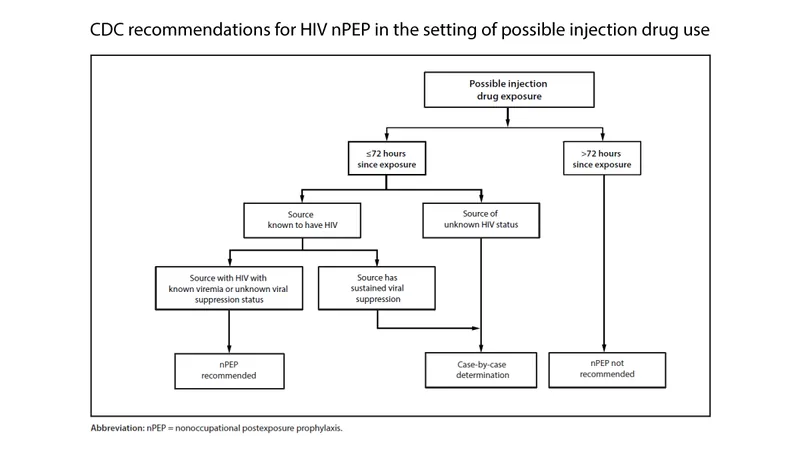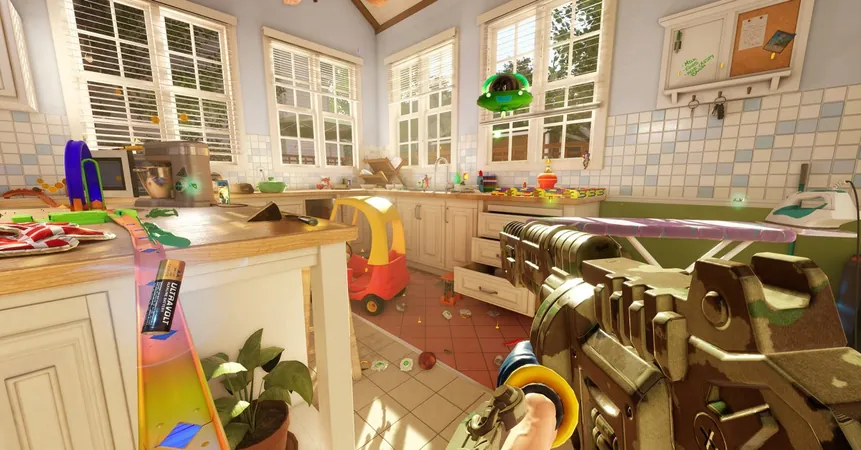
The Ultimate Guide to CDC's 2025 HIV Prevention Recommendations: Stay Safe with nPEP!
2025-05-07
Author: Ling
Your Runway to nPEP Treatment: A Swift Start!
The newest CDC recommendations for nPEP (nonoccupational Post-Exposure Prophylaxis) stress the importance of immediate action after potential HIV exposure. If you think you've been at risk, time is of the essence—initiate nPEP within 72 hours for the best chance of preventing infection.
When Is nPEP Right for You?
nPEP is a game-changer for those who may have had high-risk encounters, whether through sexual activity or sharing needles. It is critical to evaluate the HIV status of the source, their viral load, and the type of exposure. If the exposure poses a significant risk and it’s within 72 hours, nPEP can drastically lower your chances of acquiring HIV.
Don’t Wait—Start Treatment ASAP!
Every minute counts! Starting nPEP immediately can maximize its effectiveness. Providers are urged to begin the first dose as quickly as possible, regardless of pending lab results.
Tailored Regimens for Every Individual: Your Plan Matters!
It’s not a one-size-fits-all solution. The CDC outlines preferred and alternative nPEP regimens based on individual factors such as existing health conditions, possible drug interactions, and adherence ease. A typical course lasts 28 days and consists of three primary drugs, leveraging the combined power of antiretrovirals.
Stay Connected: Follow-Up is Key!
Check-ups are vital. After starting nPEP, you’ll need to undergo follow-up tests to monitor your HIV status and any potential side effects. The CDC advocates for an HIV test 4 to 6 weeks after starting treatment, plus another at 12 weeks to ensure ongoing safety.
Preventing Further Risks After nPEP!
If you’re at ongoing risk for HIV after completing nPEP, transitioning to PrEP (Pre-Exposure Prophylaxis) could be your next best step. Studies show that when taken correctly, PrEP can lower HIV risk by up to 99%.
Support Resources: You're Not Alone!
It can be overwhelming—reach out for help! There are experts available at the National Clinician Consultation Center to guide you through nPEP decisions and support during the treatment process. Check out local health resources to access necessary services.
Conclusion: Take Control of Your Health!
Knowledge is power when it comes to preventing HIV. The CDC’s recommendations empower you to take proactive steps toward safeguarding your health. Consult with healthcare professionals, understand your risks, and make informed choices today!




 Brasil (PT)
Brasil (PT)
 Canada (EN)
Canada (EN)
 Chile (ES)
Chile (ES)
 Česko (CS)
Česko (CS)
 대한민국 (KO)
대한민국 (KO)
 España (ES)
España (ES)
 France (FR)
France (FR)
 Hong Kong (EN)
Hong Kong (EN)
 Italia (IT)
Italia (IT)
 日本 (JA)
日本 (JA)
 Magyarország (HU)
Magyarország (HU)
 Norge (NO)
Norge (NO)
 Polska (PL)
Polska (PL)
 Schweiz (DE)
Schweiz (DE)
 Singapore (EN)
Singapore (EN)
 Sverige (SV)
Sverige (SV)
 Suomi (FI)
Suomi (FI)
 Türkiye (TR)
Türkiye (TR)
 الإمارات العربية المتحدة (AR)
الإمارات العربية المتحدة (AR)